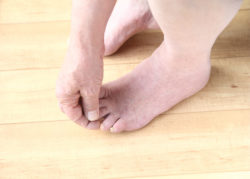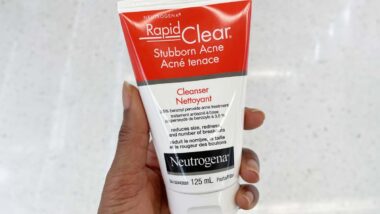Top Class Actions’s website and social media posts use affiliate links. If you make a purchase using such links, we may receive a commission, but it will not result in any additional charges to you. Please review our Affiliate Link Disclosure for more information.

Invokana is a drug from Johnson & Johnson that is generically known as canagliflozin. The medication is in a class of drugs known as SGLT2 inhibitors. The drugs treat patients with type-2 diabetes by excreting excess sugar from the body through the urine. Otherwise, the sugars would be reabsorbed by the blood, causing the patient to suffer from high blood sugar.
Dr. Bruce Neal, professor of medicine for University of New South Wales Sydney and senior director of the George Institute for Global Health in Sydney, Australia, led the study.
Dr. Neal and six other scientists combined the data from the Canagliflozin Cardiovascular Assessment Study (CANVAS) and the Study of the Effects of Canagliflozin on Renal Endpoints in Adult Participants with Type 2 Diabetes Mellitus (CANVAS-R) studies. Their examination of the Invokana amputation study data revealed that patients treated with Invokana experience leg and toe amputations nearly twice as often as patients treated with a placebo (inactive treatment).
According to the CANVAS trial results, 5.9 out of every 1,000 patients treated with Invokana and 2.8 out of every 1,000 patients treated with a placebo experienced an amputation over a year’s time.
The look at the CANVAS-R trial results also showed that over one year’s time, 7.5 of every 1,000 patients treated with Invokana and 4.2 of every 1,000 patients treated with a placebo experienced an amputation.
Patients most often suffered amputations of the toe and the middle of the foot, but some amputations did involve the leg, below and above the knee. Some patients experienced more than one amputation, sometimes involving both legs.
Invokana Amputation Study Leads to Warnings
When the FDA received the results of the Invokana amputation study, the government agency immediately issued a drug safety communication warning patients of the increased risk of leg and foot amputation in patients taking canagliflozin.
The Invokana website also has warnings of the risks of lower-limb amputations in those who take the diabetes medication.
The Invokana amputation study initiated Invokana’s website to place a warning that amputations mainly involve the removal of the toe or part of the foot, but that some people might need amputations involving the leg, below or above the knee. The warning says some people have had to undergo amputations on both sides of their body.
The Invokana warning goes on to say that certain patients might be at a higher risk of amputation. Those patients include anyone with:
- A history of amputation
- Heart disease
- At risk for heart disease
- Had blocked or narrowed blood vessels (usually in the leg)
- Nerve damage in the leg
- Diabetic foot ulcers or sores
In addition to the Invokana amputation study, other reports allege that Invokana can cause diabetic ketoacidosis and acute kidney injury.
In general, Invokana and Invokamet lawsuits are filed individually by each plaintiff and are not class actions.
Do YOU have a legal claim? Fill out the form on this page now for a free, immediate, and confidential case evaluation. The attorneys who work with Top Class Actions will contact you if you qualify to let you know if an individual lawsuit or class action lawsuit is best for you. Hurry — statutes of limitations may apply.
ATTORNEY ADVERTISING
Top Class Actions is a Proud Member of the American Bar Association
LEGAL INFORMATION IS NOT LEGAL ADVICE
Top Class Actions Legal Statement
©2008 – 2024 Top Class Actions® LLC
Various Trademarks held by their respective owners
This website is not intended for viewing or usage by European Union citizens.
Get Help – It’s Free
Join a Free Invokana Class Action Lawsuit Investigation
If you or a loved one suffered ketoacidosis or lower extremity amputation after taking Invokana, Invokamet, or Invokamet XR, you may have a legal claim. See if you qualify to pursue compensation and join a free diabetes medication class action lawsuit investigation by submitting your information for a free case evaluation.
An attorney will contact you if you qualify to discuss the details of your potential case.
PLEASE NOTE: If you want to participate in this investigation, it is imperative that you reply to the law firm if they call or email you. Failing to do so may result in you not getting signed up as a client or getting you dropped as a client.
Oops! We could not locate your form.












